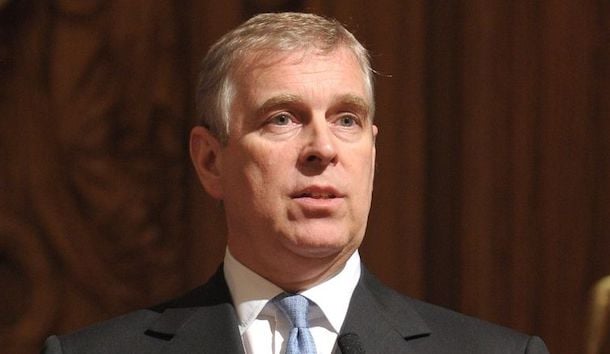The fall of Prince Andrew, Duke of York, is index to the strength of the monarchy. He has now been ordered by the Queen to step back from public life “for the foreseeable future.” His continued friendship with the convicted paedophile Jeffrey Epstein was the immediate cause, and it was followed by the Duke’s ill-judged TV interview. His somewhat louche lifestyle—characterized by Simon Heffer as “unsavoury friends, freebies, and a public who doubts”—has been fully on parade. I am not stirred by deep emotions: I have long regarded him as a Hanoverian princeling, a younger son of George III. The Queen should have disciplined him long ago, and she has now been given no choice. He lived his life on the basis of entitlement, which he extended to the privileges he demanded for his two daughters (the title of Royal Highness, security protection at all times). But Prince Charles will have his way; he wants a “streamlined” royal family with only the direct line of succession being given special treatment. The sensible Princess Anne got the point years ago, and refused all titles for her children. The public at large likes the monarch but not the “hangers-on,” as they are often termed. The Duke had become a menace to The Firm, and had to be put down.
The monarchy is ruthless when it has to be. The deposed Tsar of Russia, Nicholas II, appealed to his dear cousin George V for asylum. The King refused him, considering the Tsar a threat to his own popularity. This shrewdly selfish decision—in which he went against the advice of Lloyd George—did not come out until years later. But as Harold Nicolson, King George’s biographer, observed: “The Royal Family feel that their myth is a piece of gossamer, and must not be blown upon.” George V died in bed, in Sandringham; the Tsar in a cellar in Ekaterinburg.
There is another side to the Duke of York, which is worth pausing over. Born in 1960, eleven years younger than his elder brother Charles, he was next in line to the succession. Charles dawdled over marriage, and did not marry Diana until 1981. Even then the question was not stilled, but in 1982 they produced a healthy heir, Prince William, at which point Prince Andrew’s hope of the succession was effectively over. Since then Charles’s line has been extended by three healthy children to William and Kate. If anything had happened to Charles in the years before his marriage the throne would have awaited King Andrew I. That ever-present possibility must have had strong private impact on the mind of the duke.
The Duke of York can claim a serious credit. Holders of his title are expected to serve in the military, and take their chance in war. In Henry V, the Duke of York is killed at Agincourt. His name heads the list of the fallen, which Henry receives without comment; the theatre audience may not even be aware that York is the King’s younger brother. The present Duke served as a helicopter pilot during the Falklands campaign and is reckoned to have done well. His war record has helped to protect his later lifestyle.
And there is the sheer entertainment value of his marriage to Sarah Ferguson, later dissolved, but with the two now living together again in post-marital happiness. Who can forget the ordeal endured by Sarah, as a toe-sucking predator preyed on her, in apparent private? The world knew of this through a long-range camera, which faithfully recorded the event. As Campbell wrote, ‘‘Tis distance lends enchantment to the view.” Few jokes are attributed to Kaiser Wilhelm, but when the royal house changed its name to Windsor he said that he looked forward to seeing a production of The Merry Wives of Saxe-Coburg-Gotha. I have actually come as near as possible to this, when the RSC put on The Merry Wives of Windsor in which the lascivious Falstaff nibbled at the toes of Mistress Ford to the huge merriment of the audience.
The mystique of monarchy is not troubled by these antics. The reality is that one person is the hereditary Head of State, who takes no part in active politics but is the backstop if things go wrong. This system, in its modern form pioneered by Britain, is employed by a number of serious countries: Sweden, Denmark, Norway, Belgium, Holland, Spain, Japan, Thailand. All have rejected the presidential model of government. The major countries of the Commonwealth have adapted the model for their own purposes: Australia, New Zealand, Canada are governed under a Governor-General. What happens is that every five years the political leaders take private and confidential counsel, and then agree on the name of the next Governor-General, who must be widely respected and not controversial. That single name is then forwarded to the Queen, who signs off at once. These countries are fully independent but find useful an ancient formula that suits their traditions and needs.
There is one proviso in all this: the Head of State, whether hereditary or appointed, must be of impeccable personal behaviour. And that goes for the close family to the head. The Duke of York, in failing the test, confirms the strength of the system. It remains intact.

Leave a Reply